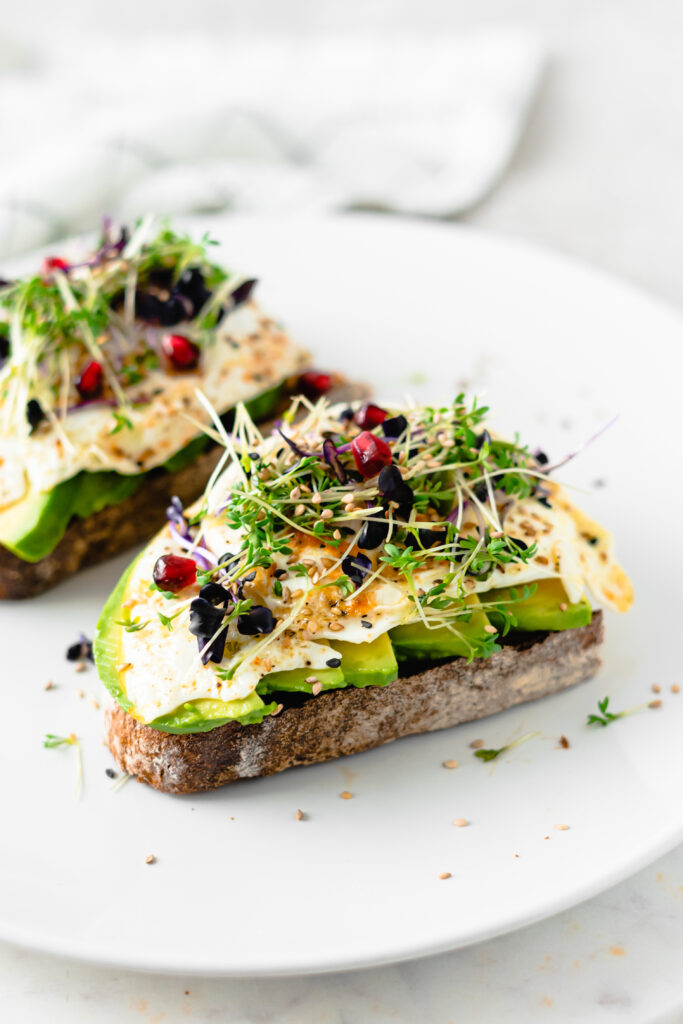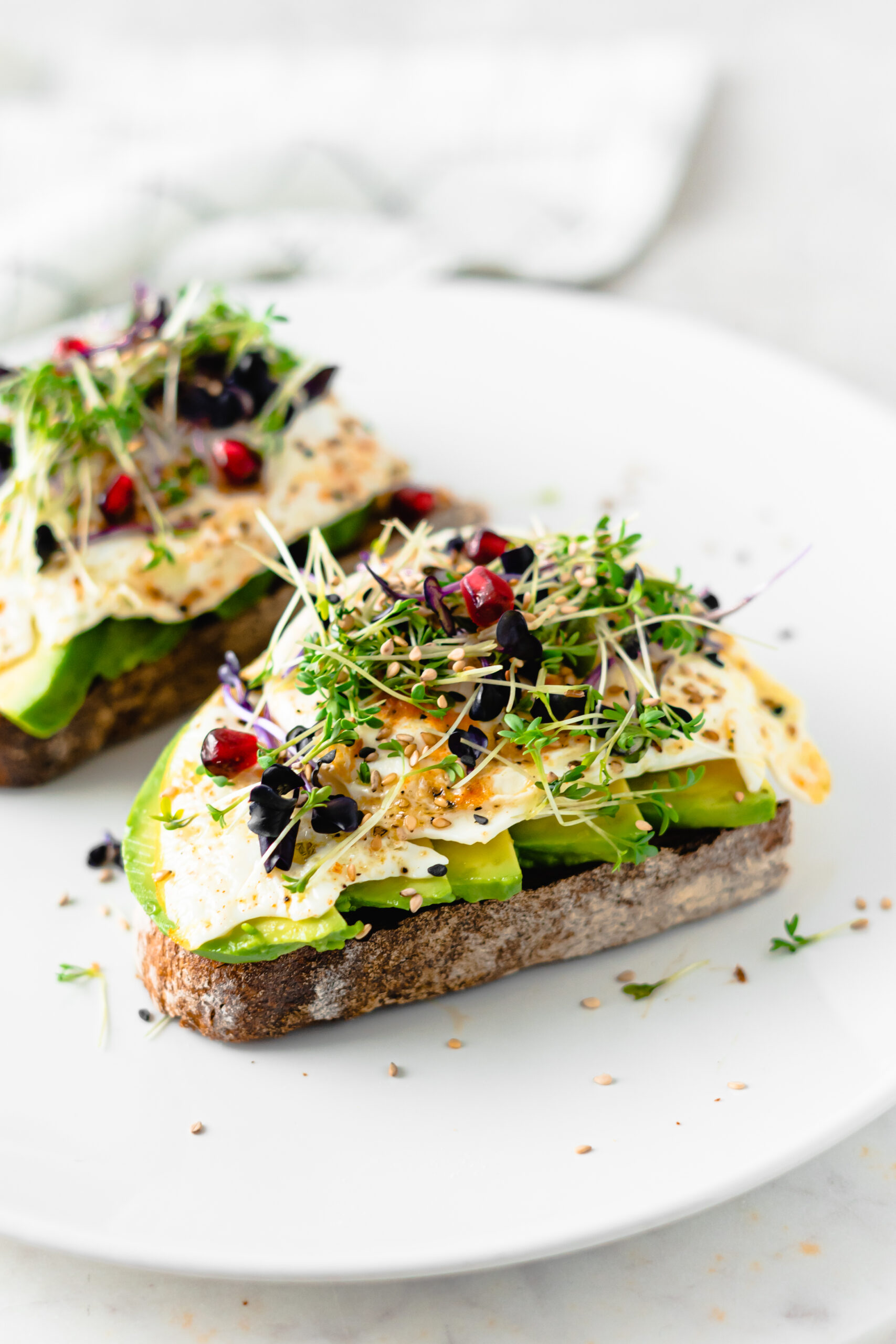Year after year, the Mediterranean diet continues to be recognized as one of the healthiest eating plans. Its focus on consuming fruits, vegetables, nuts, seeds, olive oil, fish, and lean meats has been proven to have numerous wellness benefits for adults.
However, a recent study conducted by an international group of scientists suggests that taking the Mediterranean diet a step further by adopting a Mediterranean “lifestyle” may have even greater benefits in terms of both lifespan and healthspan.
This study found that consistently following the diet’s recommendations, along with incorporating adequate sleep, exercise, and social interaction, may reduce the risk of dying or developing a serious disease like cancer by nearly 30%.
So, if you’re looking to live longer and lower your risk of disease, it might be time to consider adopting a Mediterranean lifestyle.
The Mediterranean diet for beginners: The complete guide – 40 Delicious recipes, 7-day diet meal plan, and 10 tips for success
Get your copy below:
Benefits of a Mediterranean Diet Lifestyle
Adopting a Mediterranean lifestyle can have numerous benefits for your overall health and well-being. The Mediterranean diet, which emphasizes the consumption of fruits, vegetables, nuts and seeds, olive oil, fish, and lean meats, has been consistently ranked as one of the best eating plans for overall health. However, taking the Mediterranean diet a step further and incorporating other lifestyle factors such as adequate sleep, exercise, and social interaction can provide even greater benefits.
FAQ’s
- What is the Mediterranean diet? The Mediterranean diet is a dietary pattern that is based on the traditional eating habits of people in countries surrounding the Mediterranean Sea. It emphasizes the consumption of plant-based foods, whole grains, fish, and olive oil while limiting the intake of red meat and processed foods.
- What are the health benefits of a Mediterranean lifestyle? Following a Mediterranean lifestyle has been associated with a reduced risk of various chronic diseases, including heart disease, stroke, type 2 diabetes, and certain types of cancer. It can also help with weight management, improve cognitive function, and promote longevity.
- Can I follow the Mediterranean lifestyle if I have dietary restrictions or preferences? Yes, the Mediterranean diet is highly flexible and can be adapted to accommodate various dietary restrictions and preferences. For example, vegetarian and vegan versions of the diet can be followed by substituting animal-based proteins with plant-based proteins such as legumes and tofu.
How to be successful on the Mediterranean diet
To be successful on the Mediterranean diet, it is important to focus on incorporating a wide variety of fruits, vegetables, whole grains, lean proteins, and healthy fats into your meals. Here are some tips to help you thrive on this eating plan:
- Fill your plate with plant-based foods: Make vegetables, fruits, whole grains, legumes, and nuts the foundation of your meals. Aim to include a variety of colors and textures to ensure you’re getting a wide range of nutrients.
- Choose healthy fats: Use olive oil as your primary source of fat, and include other sources of healthy fats such as avocados, nuts, and seeds. Limit your intake of saturated and trans fats found in processed foods and fatty cuts of meat.
- Include fish and lean meats: Fish, especially fatty fish like salmon and sardines, are rich in omega-3 fatty acids, which have numerous health benefits. Include lean meats like poultry and limit your consumption of red meat.
- Limit processed foods: Processed foods often contain added sugars, unhealthy fats, and high levels of sodium. Opt for whole, unprocessed foods whenever possible to maximize the nutritional value of your meals.
- Practice mindful eating: Pay attention to your hunger and fullness cues, and eat slowly to fully enjoy your meals. This can help prevent overeating and promote better digestion.
- Stay hydrated: Drink plenty of water throughout the day to stay hydrated. Limit your consumption of sugary beverages and alcohol.
- Be physically active: Regular exercise is an essential component of a Mediterranean lifestyle. Aim for at least 150 minutes of moderate-intensity aerobic activity or 75 minutes of vigorous-intensity aerobic activity per week.

The Mediterranean diet for beginners: The complete guide – 40 Delicious recipes, a 7-day diet meal plan, and 10 tips for success
Get your copy below:
How to begin a Mediterranean diet
Starting a Mediterranean diet can be simple and straightforward. Here are some steps to help you get started:
- Educate yourself: Learn about the principles of the Mediterranean diet and familiarize yourself with the types of foods to include and limit.
- Make a plan: Create a meal plan for the week that focuses on incorporating a variety of fruits, vegetables, whole grains, lean proteins, and healthy fats. Plan your grocery shopping accordingly.
- Stock your kitchen: Fill your pantry and refrigerator with Mediterranean diet staples such as olive oil, whole grains, legumes, nuts, and seeds. Having these ingredients on hand will make it easier to prepare Mediterranean-inspired meals.
- Start with small changes: Begin by incorporating one or two Mediterranean-style meals or snacks into your existing diet each day. Gradually increase the number of Mediterranean-style meals until it becomes your primary way of eating.
- Seek support: Join online communities or find a support group of individuals who are also following the Mediterranean diet. Sharing experiences and tips can help you stay motivated.
- Experiment with flavors: The Mediterranean diet is known for its delicious flavors. Try new herbs, spices, and seasonings to enhance the taste of your meals and make the transition to the diet more enjoyable.
How to build muscle on the Mediterranean diet
While the Mediterranean diet is not typically associated with muscle building, it can still provide the necessary nutrients to support muscle growth and maintenance. Here are some tips to help you build muscle on the Mediterranean diet:
- Focus on protein-rich foods: Include lean sources of protein in your meals such as fish, poultry, legumes, and Greek yogurt. These foods provide essential amino acids that are the building blocks of muscles.
- Opt for whole grains: Choose whole-grain bread, pasta, and rice instead of their refined counterparts. Whole grains provide a good source of carbohydrates for energy and also contain fiber and other nutrients that support muscle recovery.
- Include healthy fats: Incorporate sources of healthy fats such as avocados, olive oil, nuts, and seeds into your meals. These fats help provide energy and support overall health.
- Eat a variety of fruits and vegetables: Fruits and vegetables are rich in antioxidants and other compounds that promote recovery and reduce muscle inflammation. Aim for a variety of colors to ensure you’re getting a wide range of nutrients.
- Stay hydrated: Drinking enough water is crucial for muscle recovery and overall performance. Aim to drink plenty of water throughout the day and consider incorporating hydrating foods such as watermelon and cucumbers into your meals.
- Don’t forget strength training: In addition to a balanced diet, incorporating regular strength training exercises into your routine is essential for building muscle. Focus on exercises that target all major muscle groups and gradually increase the intensity and weight as your strength improves.

How to calculate the Mediterranean diet score
Calculating your Mediterranean diet score can help you assess how closely you’re following the principles of the diet. Here’s a simple way to calculate your Mediterranean diet score:
- Assign points to each food group: Give yourself one point for each of the following food groups you consume daily: fruits, vegetables, whole grains, legumes, nuts, healthy fats (such as olive oil), and fish.
- Subtract points for certain foods: Subtract one point for consuming red meat, processed meats, and sweets on a daily basis.
- Add bonus points for healthy habits: Give yourself one bonus point if you consume alcohol in moderation (such as a glass of red wine with meals) and if you have a physically active lifestyle.
- Calculate your score: Add up your total points and divide it by the maximum possible score to get your Mediterranean diet score. The higher your score, the closer you are to following the Mediterranean diet.
How to change to a Mediterranean diet
Changing to a Mediterranean diet can be a gradual process. Here are some steps to help you transition to a Mediterranean way of eating:
- Educate yourself: Learn about the principles of the Mediterranean diet and its health benefits. Understand the types of foods to include and limit.
- Assess your current diet: Take a look at your current eating habits and identify areas where you can make improvements. Start by reducing the consumption of processed foods, sugary drinks, and unhealthy fats.
- Make small changes: Begin by implementing one or two Mediterranean diet principles at a time. For example, start by incorporating more fruits and vegetables into your meals or replacing butter with olive oil.
- Gradually increase Mediterranean-style meals: Slowly increase the number of Mediterranean-style meals you consume each week. Experiment with new recipes and flavors to make the transition more enjoyable.
- Focus on whole, unprocessed foods: Fill your pantry and refrigerator with whole grains, fruits, vegetables, legumes, nuts, and seeds. These should form the basis of your meals.
- Limit red meat and processed foods: Reduce your consumption of red meat and processed foods that are high in unhealthy fats, sodium, and added sugars. Opt for lean sources of protein such as fish and poultry instead.
- Enjoy meals with others: The Mediterranean lifestyle is not just about the food; it also emphasizes the importance of social interaction. Share meals with family and friends to enhance the overall experience.
- Stay consistent: Consistency is key when adopting any new dietary pattern. Stay committed to the Mediterranean diet and monitor how it makes you feel. Adjust your meal choices and portion sizes as needed.

How to combine keto and Mediterranean diet
Combining the ketogenic (keto) diet and the Mediterranean diet can be a powerful approach to improving health and managing weight. Here’s how you can combine both dietary patterns:
- Understand the principles of both diets: Familiarize yourself with the main principles of the keto diet, which focuses on high fat, moderate protein, and very low carbohydrate intake. Also, understand the principles of the Mediterranean diet, which emphasizes whole foods, fruits, vegetables, and healthy fats.
- Find common ground: Identify the similarities between the two diets and use them as a starting point. Both diets emphasize the consumption of healthy fats, such as olive oil, avocados, and nuts.
- Include low-carb Mediterranean foods: Choose low-carb versions of Mediterranean foods, such as cauliflower rice instead of traditional rice or zucchini noodles instead of pasta. This allows you to still enjoy Mediterranean flavors while reducing carbohydrate intake.
- Prioritize nutrient-dense foods: Both diets prioritize nutrient-dense foods. Focus on consuming high-quality protein sources, non-starchy vegetables, and healthy fats to meet your nutrient needs while keeping carbohydrates low.
- Be mindful of portion sizes: Pay attention to portion sizes to ensure you’re not overconsuming calories. While healthy fats are encouraged in both diets, they are calorie-dense, so portion control is important.
- Seek professional guidance: If you’re considering combining the keto and Mediterranean diets, it’s best to consult with a healthcare professional or registered dietitian who can provide personalized guidance and support.
How to cook eggs on the Mediterranean diet
Eggs are a versatile and nutritious food that can be enjoyed as part of a Mediterranean diet. Here are some ideas on how to cook eggs while following the principles of the Mediterranean diet:
- Veggie-packed omelet: Whip up an omelet using egg whites or whole eggs and load it with an assortment of colorful vegetables such as peppers, spinach, tomatoes, and onions. Top it off with a sprinkle of feta cheese for added flavor.
- Mediterranean scramble: Scramble eggs with chopped fresh herbs like basil, oregano, or thyme, and add your favorite Mediterranean ingredients such as olives, sun-dried tomatoes, and artichoke hearts.
- Poached eggs with avocado: Poach eggs and serve them on a bed of sliced avocado. Sprinkle with sea salt, black pepper, and a drizzle of extra virgin olive oil.
- Shakshuka: This North African dish is a delicious and satisfying option for breakfast or brunch. It consists of eggs poached in a spicy tomato sauce with onions, bell peppers, and spices like cumin and paprika.
- Baked eggs with vegetables: Roast a variety of vegetables such as zucchini, bell peppers, and cherry tomatoes in the oven. Once cooked, create small wells in the veggies and crack an egg into each well. Bake until the eggs are cooked to your liking.
- Egg salad: Make a Mediterranean-inspired egg salad by combining boiled eggs with diced cucumbers, cherry tomatoes, olives, and a dressing made with Greek yogurt, lemon juice, and fresh herbs.
Remember to use extra virgin olive oil or other healthy fats for cooking instead of butter or vegetable oils. These cooking methods will help you enjoy eggs while staying true to the principles of the Mediterranean diet.
How to cook fish on the Mediterranean diet
Fish is a prominent feature of the Mediterranean diet and provides a rich source of omega-3 fatty acids and lean protein. Here are some tips on how to cook fish while following the Mediterranean diet:
- Grilled fish: Grilling is a popular cooking method for fish in the Mediterranean region. Marinate fish fillets or whole fish in a mixture of olive oil, lemon juice, garlic, and fresh herbs, then grill them until they’re cooked through and have a flavorful char.
- Baked fish: Preheat your oven and lightly coat fish fillets or whole fish with olive oil. Season with herbs, spices, and a squeeze of lemon juice. Place the fish on a baking sheet and bake until it flakes easily with a fork.
- Pan-seared fish: Heat olive oil in a skillet over medium-high heat. Season the fish with salt, pepper, and any other desired herbs or spices. Place the fish in the hot skillet and cook until it’s golden brown on one side, then flip and cook until it’s cooked through.
- Fish en papillote: This is a cooking technique that involves wrapping fish and vegetables in parchment paper or aluminum foil and baking them. The steam created inside the packet helps to cook the fish gently while retaining moisture and flavor.
- Fish stew or soup: Create a delicious Mediterranean-inspired fish stew or soup by combining fish, vegetables, herbs, and a flavorful broth. Simmer the ingredients together until the fish is cooked and the flavors have melded.
- Fish salad: Prepare a refreshing fish salad by flaking cooked fish over a bed of mixed greens. Add chopped cucumbers, tomatoes, olives, and a drizzle of olive oil and lemon juice for dressing.
Remember to choose sustainable fish options and check for any local fishing advisories before purchasing fish. Aim to incorporate fish into your meals at least twice a week to reap the full benefits of the Mediterranean diet.
How to cook potatoes on the Mediterranean diet
Potatoes are a versatile and nutritious ingredient that can be prepared in various ways while following the Mediterranean diet. Here are some ideas on how to cook potatoes while staying true to the principles of the Mediterranean diet:
- Roasted potatoes: Preheat your oven and toss quartered potatoes with olive oil, minced garlic, and your choice of herbs and spices. Spread them in a single layer on a baking sheet and roast until they’re golden brown and crispy.
- Oven-baked fries: Cut potatoes into fry shapes and toss them with olive oil, sea salt, and your favorite seasonings. Arrange them on a baking sheet and bake until they’re crispy on the outside and tender on the inside.
- Grilled potatoes: Slice potatoes into thin rounds and toss them in a mixture of olive oil, salt, pepper, and herbs. Grill the potato slices until they’re tender and have grill marks.
- Potato salad: Make a Mediterranean-style potato salad by combining cooked and diced potatoes with chopped vegetables such as cucumbers, cherry tomatoes, red onions, and parsley. Dress the salad with a mixture of olive oil, lemon juice, Dijon mustard, and herbs.
- Mashed potatoes: Opt for a healthier version of mashed potatoes by using olive oil, Greek yogurt, or low-fat milk instead of butter and cream. Season with herbs and spices for extra flavor.
- Potato and vegetable gratin: Layer sliced potatoes, zucchini, tomatoes, and onions in a baking dish. Season each layer with salt, pepper, and herbs. Pour a mixture of low-fat milk or vegetable broth over the top and bake until the potatoes are tender and the top is golden brown.
Remember to choose colorful potatoes, such as sweet potatoes or purple potatoes, to increase the variety of nutrients in your meals. Incorporate potatoes into your Mediterranean diet in moderation, as they are a starchy vegetable.
The Mediterranean diet for beginners: The complete guide – 40 Delicious recipes, a 7-day diet meal plan, and 10 tips for success
Get your copy below:



